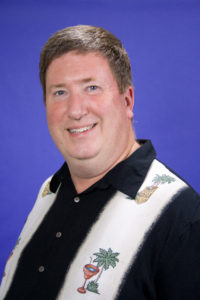
Dr John Studley (JS) from Scientific Update spoke to Dr David Barnes (DB) from Abbvie in the US ahead of our ‘Organic Process Research and Development’ Conference which is taking place in Clearwater, Florida on 9-11 March.
We are looking forward to your presentation ‘Discovery of Novel Catalytic Technologies in the Development of Complex Clinical Candidates’.
Q: (JS) The complexity of clinical candidates across the industry is increasing- what are your thoughts on the reasons for this and the challenges for process development?
A: (DB)I think that the complexity of candidates is increasing because the ability of chemists to imagine and prepare complex organic structures is continuously improving. This has enabled the more extensive optimization of chemical series for their biological properties. The challenges for process development are at least two-fold. The first is to be able to rapidly identify robust and scalable processes to enable early clinical studies. The second requires the ability to develop ever more complex synthetic routes and processes that are safe, efficient, and environmentally benign for commercialization.
Q: (JS) Can you tell me about your role at AbbVie?
A: (DB) I am in the Process Chemistry group at AbbVie. I have been at AbbVie for 22 years and have spent most of this time (except for three years in the Process Analytical group) in the chemistry group. In addition to some project responsibilities, I am the group leader of our Chemical Technologies group which includes our work in catalysis, as well as emerging chemical platforms.
Q: (JS) Who inspired you to become a scientist?
A: (DB) My parents encouraged an environment of learning and questioning from my elementary school days. Later when I was in college, I became fascinated with Organic Chemistry under the tutelage of Prof. David Evans








